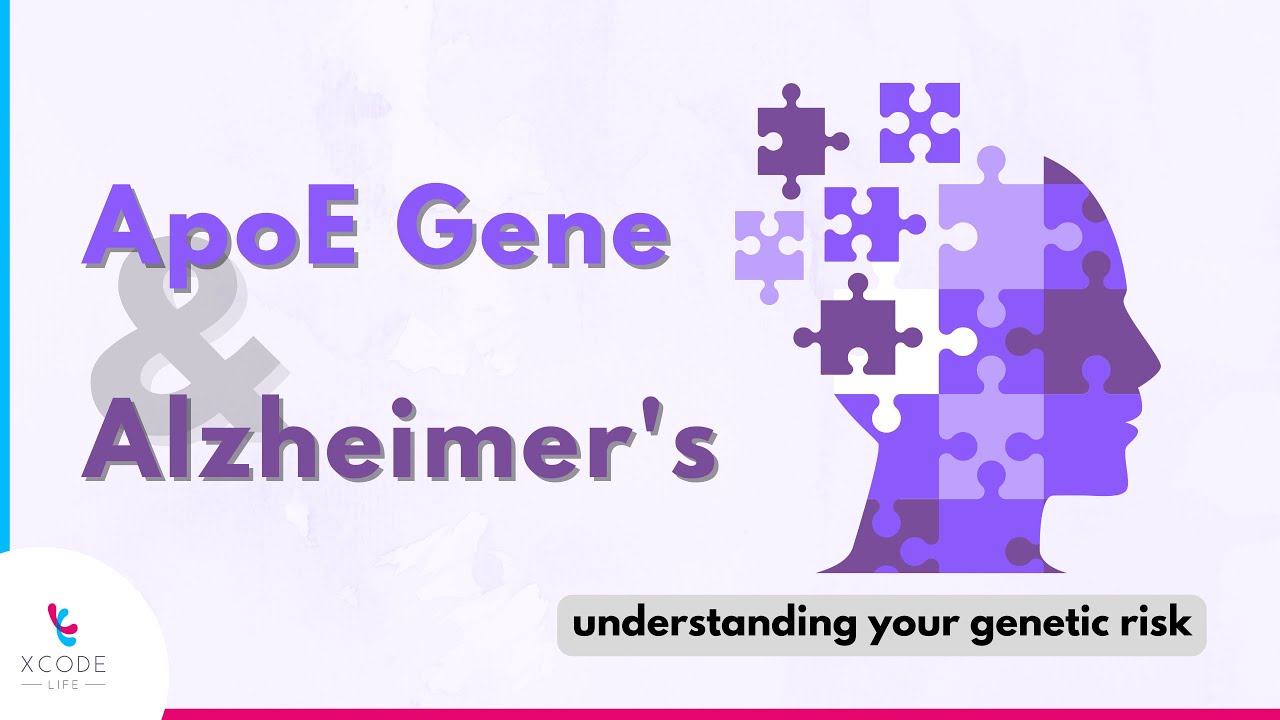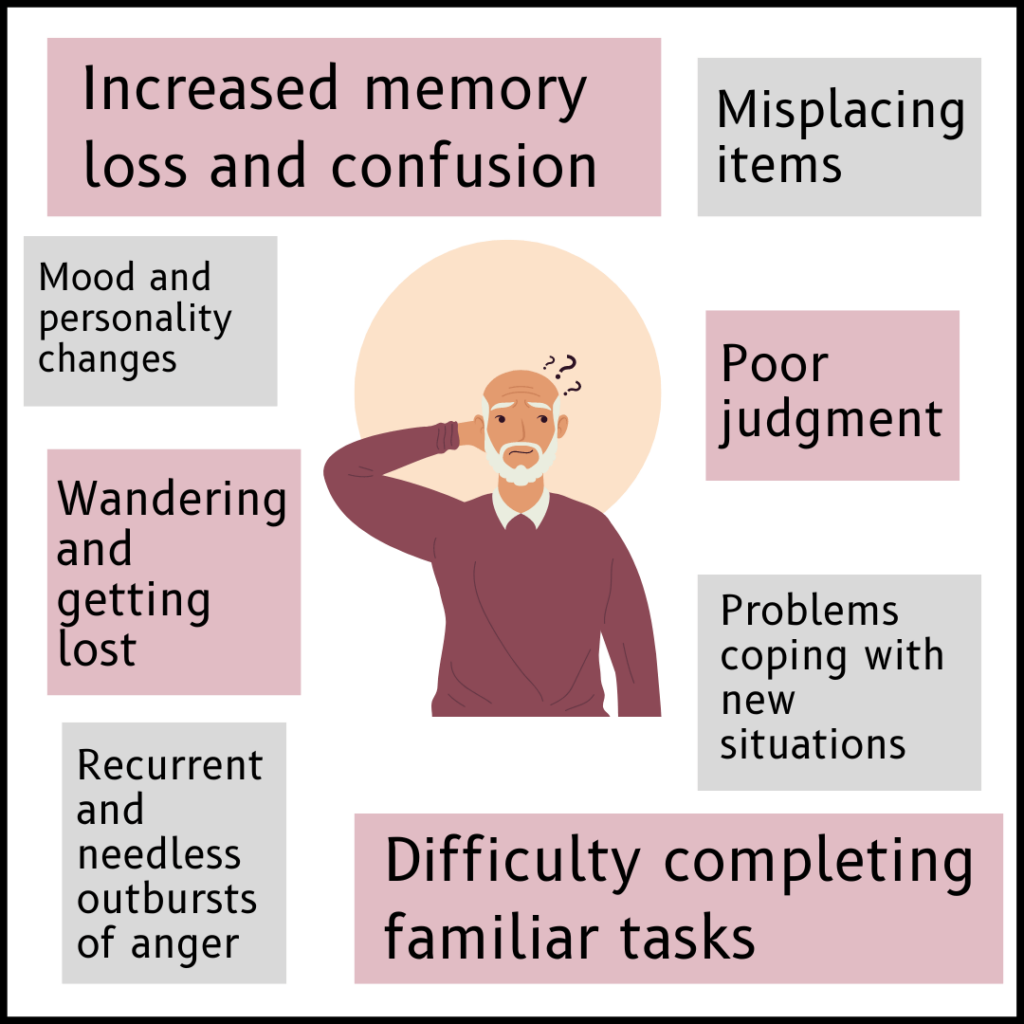Have you ever experienced a day when it's difficult to remember something? Or concentrate on a task? As we get older, some cognitive slip-ups are normal.
But for others, these may hint at something more concerning.
In this piece, we'll delve into Alzheimer's, its causes, and symptoms and explore how breathing exercises might provide some defense against this condition.
What Is Alzheimer’s?
Alzheimer's disease is a complex neurological condition.
It gradually (and irrevocably) alters the human brain. As a result, it is characterized by a progressive cognitive decline.
This decline manifests as memory loss and severe language difficulties, disorientation, and challenges with abstract thinking.
Alzheimer's often commences subtly, with minor lapses in memory or temporary confusion.
The early symptoms are easy to dismiss as normal aging.
However, as the disease advances, it becomes increasingly disruptive, affecting all facets of cognitive function.
The ability to perform routine tasks, recognize loved ones, and communicate effectively may gradually disappear.
The progression of Alzheimer's ultimately reaches a point where individuals require full-time care, which often leads to significant emotional and physical strain for caregivers.
For those who've witnessed a loved one grappling with Alzheimer's, the journey is deeply moving, sometimes distressing, and profoundly transformative.
It involves a gradual loss of the person they once knew, as the disease slowly erodes their unique personality traits, cherished memories, and eventually, their sense of self.
What Causes Alzheimer's?
Alzheimer's stems from the build-up of beta-amyloid protein in the brain.
Amyloid-beta protein is a large membrane protein that plays a big role in neural growth and repair. The body produces it from a larger protein called amyloid precursor protein (APP).
The protein called APP is located on nerve cells. When enzymes break it down, it creates several fragments, including amyloid-beta.
This creates plaques that interfere with nerve cell communication.
As these plaques increase, they trigger inflammation and brain cell damage, leading to cognitive decline.
However, while this protein is often credited as a cause of Alzheimer's, many studies are still ongoing to identify the actual or other more prominent causes.
Common Alzheimer's Symptoms
Early signs and symptoms
- Memory loss that disrupts daily life
- Difficulty performing familiar tasks
- Problems with language
- Changes in mood or behavior
- Difficulty with abstract thinking
- Trouble with judgment
- Getting lost in familiar places
- Decreased interest in activities once enjoyed
- Difficulty with balance and coordination
Late signs and symptoms
- Difficulty speaking or understanding speech
- Wandering or getting lost
- Hallucinations or delusions
- Aggressive behavior
- Difficulty swallowing
- Seizures
- Loss of muscle control
- Coma
It's important to remember that the symptoms and signals mentioned are general and may not be applicable to everyone with Alzheimer's.
If you are worried that you or a loved one may have Alzheimer's, you should consult a doctor for a diagnosis.
Alzheimer's Risk Factors
Age, genetics, and lifestyle choices (like poor diet and sedentary life) are common risk factors for Alzheimer's.
However, the most significant factor in developing Alzheimer's and other cognitive problems is age.
As a person gets older, their chances of developing these conditions increase.
Similarly, our genes also play a crucial part in determining this risk.
Lifestyle factors, however, add a dynamic element to this equation.
While we can't turn back time or rewrite our genetic code, we hold the reins regarding these lifestyle choices.
By embracing a healthy diet, staying physically active, and avoiding smoking, we can wield substantial influence over our Alzheimer's risk, potentially steering ourselves towards a healthier cognitive future.
Cognitive Benefits Of Breathing Exercises
Harnessing our breath through specific exercises can profoundly impact our mental faculties.
Research points to lessened anxiety, improved focus, and overall cognitive enhancement.
It's akin to a gym session for your mind, ensuring mental agility.
So, what's the science behind this?
Breathwork activates the parasympathetic nervous system.
This system acts like an internal chill-out switch, reducing heart rate and blood pressure.
It makes us deeply relaxed, lowering brain inflammation and enhancing cognitive function.
Breathing Exercise May Lower Alzheimer’s Risk: The Study
A study in Scientific Reports, led by the University of Southern California researchers, delved into breathwork's potential impact on Alzheimer's.
Study Participants and Study Design
They assembled 108 participants and divided them into two groups.
One group practiced slow-paced breathing for 20 minutes twice daily for a month.
The control group followed their usual routine.
Study Observations
Post-study results were intriguing.
The breathwork group showed a significant drop in blood levels of amyloid-beta peptides, a protein implicated in Alzheimer's development.
This group also demonstrated better memory test scores.
Study Limitations
Please keep in mind that this study was relatively small.
More research is needed to validate findings across a larger set of populations. Yet, the initial results show promise.
They hint that something as uncomplicated as breathwork might help decrease Alzheimer's risk.
So, if you're concerned about Alzheimer's, consider integrating breath exercises into your routine. It's a straightforward, safe approach to better health, potentially offering a cognitive edge.
Simple Breathing Exercises For A Healthy Brain
Breathing exercises can easily blend into your daily routine. You can practice many straightforward exercises anywhere, anytime.
To maintain a healthy brain, try these breathing exercises:
- Diaphragmatic Breathing: To utilize this technique, take deep breaths from your diaphragm, which is located at the bottom of your lungs. Sit or lie down comfortably.
Put one hand on your chest and the other on your stomach. Slowly inhale through your nose; feel your belly expand. Then slowly exhale through your mouth; feel your stomach contract.
- Alternate Nostril Breathing: This exercise involves breathing through alternate nostrils, which balances the brain's left and right sides.
To perform this breathing exercise, sit comfortably with a straight spine and place your left hand on your left knee. Next, cover your right nostril with your right thumb while breathing through your left one. After that, close your left nostril with your ring finger and exhale from your right. Then again, inhale through your right nostril, use your right thumb to close it, and exhale from your left nostril. Repeat this cycle for several rounds.
- Box Breathing: To perform this exercise, follow a pattern of four counts of inhaling, holding your breath for four counts, then exhaling for four counts, and holding your breath again for four counts.
Sit comfortably with a straight back and your feet flat on the ground. Breathe in deeply through your nose, counting up to four. Then hold your breath for four counts. Exhale through your nose for four counts. Hold your breath for four counts. Repeat this pattern for several rounds[^6^].
Summary
Breathing exercises have cognitive benefits and might reduce Alzheimer's risk. In addition, several studies have presented promising results showing that deep breathing exercises (like alternate nostril breathing and breath retention) can significantly cut amyloid-beta peptide levels. For example, one study involved 100+ participants assigned to a breathing exercise group or a control group.
While the study had limitations, it did offer quantified evidence that integrating simple breathing exercises into your daily routine might help lower the risk of Alzheimer's.
In all, breathing exercises are the easiest and most accessible way to support brain health that could benefit individuals of all ages, preventing the onset of diseases that are common with aging.








